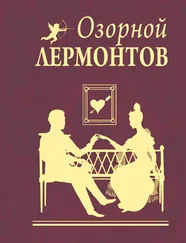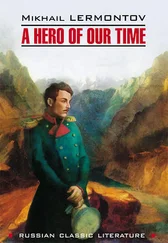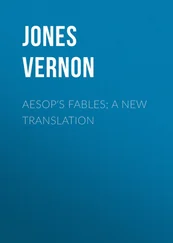“Yes, I have pity for the wretch… The devil possessed him to talk to a drunk that night! But, clearly, it had been written for him in the sky at his birth…!”
I couldn’t get any more out of him; he doesn’t like metaphysical debates in general.
About the Author and the Translator
MIKHAIL YURIEVICH LERMONTOV was born in 1814. After his mother’s death in 1817, he was separated from his father and brought up at the estate of his aristocratic grandmother. Educated at home, he twice made journeys to the Caucasus and then studied in Moscow University Pension for the Nobility and the University (1830-32), although without sitting examinations. He then entered St. Petersburg Guards’ School and began writing poetry and autobiographical dramas in prose. In 1834 he was made an officer in the Guards Hussars. On Pushkin’s death in 1837, Lermontov was arrested for a poem of invective against court circles, The Death of a Poet, and was consequently expelled from the Guards and sent to the army in the Caucasus. When he returned to the capital he became involved in a duel and in 1840 was banished again to the Caucasus. He was twice cited for bravery, but the tsar refused to give him the award. On leave in 1841, hoping to retire and devote himself to literature, he was ordered back to the forces. He was challenged to a duel by another officer over a trivial insult and was killed on the spot. Lermontov is renowned as the one true Romantic poet produced by Russia and the one who reflected most strongly the current trend of Byronism. Many of his poems were set to music— Borodino and The Cossack Lullaby became popular songs and The Demon was made into an opera by A. Rubenstein. His other poems include The Novice, The Prayer, Novgorod, The Prophet, and My Country. Lermontov greatly influenced Dostoevsky and Blok, while Tolstoy and Chekhov regarded his prose as a model.
NATASHA RANDALL has published translations of Yevgeny Zamyatin’s We (shortlisted for the 2008 Oxford-Weidenfeld Translation Prize) and Osip Mandelstam’s poetry, as well as the work of contemporary writers Arkady Dragomoshchenko, Alexander Skidan, and Olga Zondberg. She is a frequent contributor to the Los Angeles Times and lives in London.
NEIL LABUTE is a filmmaker and playwright whose work includes In the Company of Men and The Shape of Things. He lives in Chicago.
PENGUIN

CLASSICS
PENGUIN BOOKS
Published by the Penguin Group
Penguin Group (USA) Inc., 375 Hudson Street, New York, New York 10014, U.S.A.
Penguin Group (Canada), 90 Eglinton Avenue East, Suite 700, Toronto, Ontario, Canada M4P 2Y3 (a division of Pearson Penguin Canada Inc.)
Penguin Books Ltd, 80 Strand, London WC2R 0RL, England
Penguin Ireland, 25 St Stephen’s Green, Dublin 2, Ireland (a division of Penguin Books Ltd)
Penguin Group (Australia), 250 Camberwell Road, Camberwell, Victoria 3124, Australia (a division of Pearson Australia Group Pty Ltd)
Penguin Books India Pvt Ltd, 11 Community Centre, Panchsheel Park, New Delhi - 110 017, India
Penguin Group (NZ), 67 Apollo Drive, Rosedale, North Shore 0632, New Zealand (a division of Pearson New Zealand Ltd)
Penguin Books (South Africa) (Pty) Ltd, 24 Sturdee Avenue, Rosebank, Johannesburg 2196, South Africa
Penguin Books Ltd, Registered Offices: 80 Strand, London WC2R 0RL, England
This translation first published in Penguin Books 2009
Translation, introduction and notes copyright © Natasha Randall, 2009
Foreword copyright © Neil LaBute, 2009
All rights reserved
LIBRARY OF CONGRESS CATALOGING IN PUBLICATION DATA
Lermontov, Mikhail Ur’evich, 1814-1841.
[Geroi nashego vremeni. English]
A hero of our time / Mikhail Lermontov ; translated with an introduction and notes by Natasha Randall ; foreword by Neil Labute.
p. cm.—(Penguin classics)
“This translation first published in Penguin Books 2009.”
Includes bibliographical references.
eISBN : 978-1-101-05721-6
1. Caucasus—Fiction. 2. Russia—Social life and customs—1533-1917—Fiction. 3. Russia—History, Military—1801-1917—Fiction. I. Title.
PG3337.L4G4133 2009
891.73ʹ3—dc22 2009006797
The scanning, uploading and distribution of this book via the Internet or via any other means without the permission of the publisher is illegal and punishable by law. Please purchase only authorized electronic editions, and do not participate in or encourage electronic piracy of copyrighted materials. Your support of the authors’ rights is appreciated.
http://us.penguingroup.com
Belinsky, V. G. Notes of the Fatherland (St. Peterburg: 1841), vol. XIV, pp. 45-46.
Eikhenbaum, B. M. Lermontov: A Study in Literary-Historical Evaluation (Ann Arbor: Ardis, 1981), p. 171.
Garrard, John. “Old Wine in New Bottles: The Legacy of Lermontov” in Poetica Slavica: Studies in Honour of Zbigniew Folejewski, edited by J. Douglas Clayton and Gunter Schaarschmidt (Ottawa: University of Ottawa Press, 1981), pp. 41-52.
Belinsky, V. G., and M. Yurievich Lermontov. Pro et Contra (St. Petersburg: Izdatel’stvo Russkogo Khristianskogo Gumanitrnogo Instituta, 2002), p. 75.
Barthes, Roland. S/Z, trans. Richard Miller (London: Jonathan Cape, 1975).
As translated by Laurence Kelly in Kelly, Laurence. Lermontov: Tragedy in the Caucasus (London: Constable, 1977), p. 100.
Vasilchikov, Prince Alexander. As translated and mentioned by Richard Freeborn in Freeborn, Richard. “A Hero of Our Time” in The Rise of the Russian Novel (Cambridge: Cambridge University Press, 1973), p. 39.
Kelly, Laurence. Lermontov: Tragedy in the Caucasus, p. 44.
Eikhenbaum, B. M. Lermontov: A Study in Literary-Historical Evaluation, p. 170.
Rus’: A term referring to an ancient people and their land, which are latterly represented by the Belarusian, Ukrainian, and Russian peoples and their territories.
dukhan: An inn in the Caucasus.
verst: An obsolete Russian measurement equal to about 3,500 feet.
troika: A carriage drawn by three horses harnessed side by side.
saklyas: Caucasian mountain huts.
Lermontov uses the word burka here, a felt cloak worn in the Caucasus.
bouza: A kind of fermented alcohol made from millet.
peaceable prince: The term for a local chieftain who took no sides in the war between the Caucasian tribes and the Russians.
peaceable prince: A tribal leader who cooperated with Russian forces in the Caucasus.
kunak: This means true friend, blood brother.
aul: A Caucasian village.
balalaika: A Russian stringed instrument with a triangular body and long neck.
Читать дальше
Конец ознакомительного отрывка
Купить книгу
![Михаил Лермонтов A Hero of Our Time [New Translation] обложка книги](/books/27671/mihail-lermontov-a-hero-of-our-time-new-translati-cover.webp)











